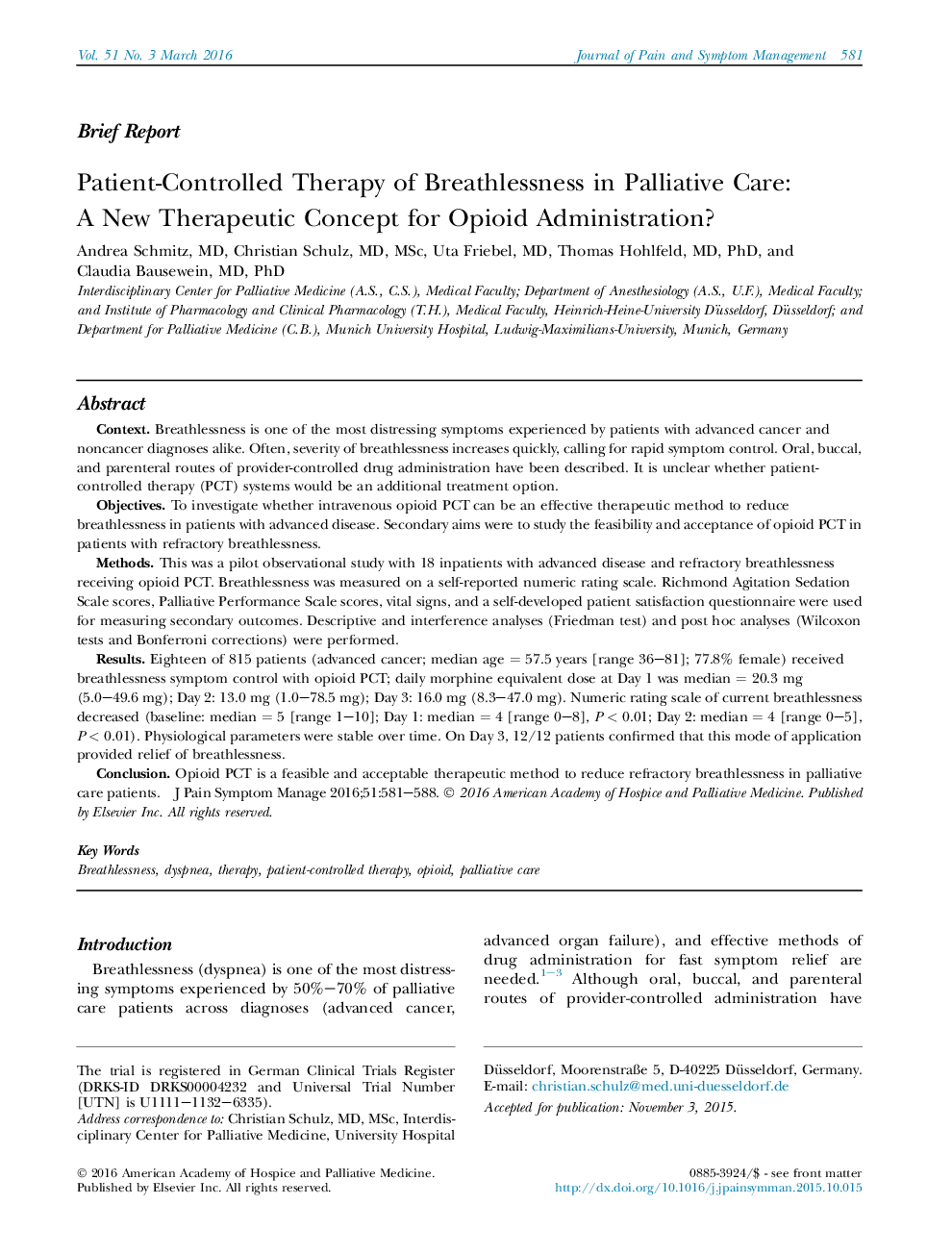| Article ID | Journal | Published Year | Pages | File Type |
|---|---|---|---|---|
| 2729735 | Journal of Pain and Symptom Management | 2016 | 8 Pages |
ContextBreathlessness is one of the most distressing symptoms experienced by patients with advanced cancer and noncancer diagnoses alike. Often, severity of breathlessness increases quickly, calling for rapid symptom control. Oral, buccal, and parenteral routes of provider-controlled drug administration have been described. It is unclear whether patient-controlled therapy (PCT) systems would be an additional treatment option.ObjectivesTo investigate whether intravenous opioid PCT can be an effective therapeutic method to reduce breathlessness in patients with advanced disease. Secondary aims were to study the feasibility and acceptance of opioid PCT in patients with refractory breathlessness.MethodsThis was a pilot observational study with 18 inpatients with advanced disease and refractory breathlessness receiving opioid PCT. Breathlessness was measured on a self-reported numeric rating scale. Richmond Agitation Sedation Scale scores, Palliative Performance Scale scores, vital signs, and a self-developed patient satisfaction questionnaire were used for measuring secondary outcomes. Descriptive and interference analyses (Friedman test) and post hoc analyses (Wilcoxon tests and Bonferroni corrections) were performed.ResultsEighteen of 815 patients (advanced cancer; median age = 57.5 years [range 36–81]; 77.8% female) received breathlessness symptom control with opioid PCT; daily morphine equivalent dose at Day 1 was median = 20.3 mg (5.0–49.6 mg); Day 2: 13.0 mg (1.0–78.5 mg); Day 3: 16.0 mg (8.3–47.0 mg). Numeric rating scale of current breathlessness decreased (baseline: median = 5 [range 1–10]; Day 1: median = 4 [range 0–8], P < 0.01; Day 2: median = 4 [range 0–5], P < 0.01). Physiological parameters were stable over time. On Day 3, 12/12 patients confirmed that this mode of application provided relief of breathlessness.ConclusionOpioid PCT is a feasible and acceptable therapeutic method to reduce refractory breathlessness in palliative care patients.
